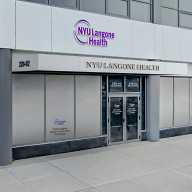Proposed cuts in New York State’s 2008-2009 budget could severely affect the long-term care industry, which was also hit hard with cuts last year.
Between the enacted budget of the 2007-2008 fiscal year and the currently proposed budget for next year, long-term health care providers are facing a total loss of $893.6 million.
“On behalf of our residents and patients and clients we serve, it was quite upsetting to us,” Michael N. Rosenblut, the President and Chief Executive Officer of the Parker Jewish Institute for Health Care & Rehabilitation, said of the news of the proposal.
Just some of the ways that the potential cuts could affect Parker Jewish in 2008 include $8,496,523 in payment and revenue cuts, a loss of $1,297,800 for quality improvement funds and a loss of $1,065,600 in recruitment and retention funds.
“We’re very concerned that the cuts will fall hardest on the not-for-profit providers,” said Continuing Care Leadership Coalition President Scott Amrhein.
A special area of concern is the “Medicaid-Only Case Mix” provision, which is anticipated to result in a statewide loss of $190.8 million between the enacted and proposed budgets and a $3,797,152 loss at Parker Jewish specifically. Nursing home payment rates would be based on Medicaid patients’ care needs only under this provision, rather than taking into account the overall need level.
Members of the long-term health care industry have been meeting with local elected officials and legislators in Albany to educate them about the impact the proposed cuts will have.
Rosenblut said that if the reductions do occur, Parker Jewish will have to review its operations. Being that more than 75 percent of its costs are related to labor, the cuts could have a great impact on staffing.
In the long run, Rosenblut said that these potential cuts could hurt workforce development. He said that the money needs to be there so that when the baby boomer generation begins to need services, the workforce will be there to support the demands.
Rosenblut also said that it is important to focus on how the elderly population has earned the right to have the best possible care.





























